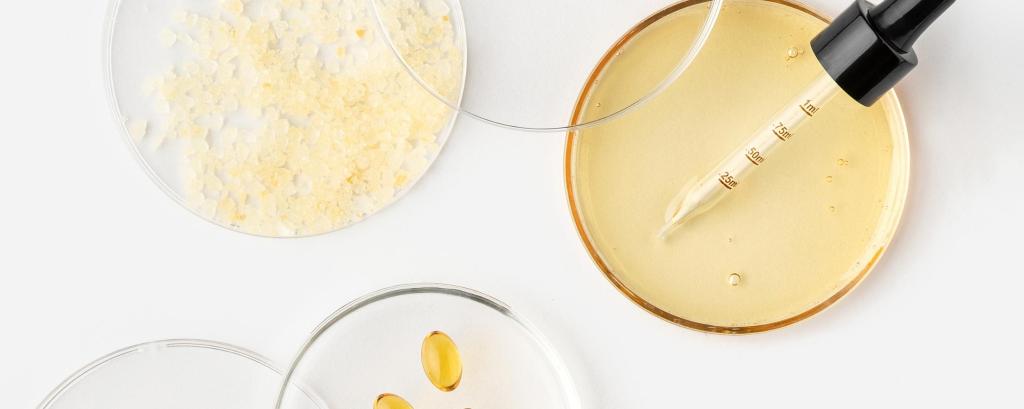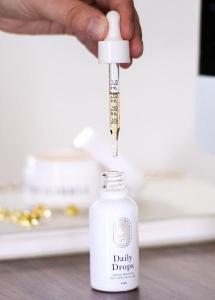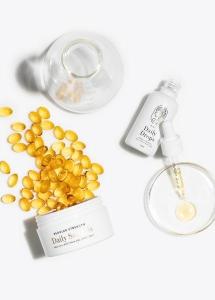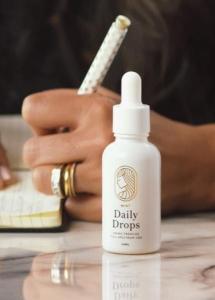How to Find Quality CBD Using Certificates of Analysis

With how common CBD is becoming, exploring Certificates of Analysis (COAs) can help consumers identify safe, quality products. After all, starting with a more effective product is more likely to lead to better success and more therapeutic benefits!
 What is a Certificate of Analysis and Why Does it Matter?
What is a Certificate of Analysis and Why Does it Matter?
While you may not have had the need to look into Certificates of Analysis, or COAs, for goods you’ve purchased in the past, they are common practices that are becoming increasingly familiar within the CBD industry. Good Manufacturing Practice (GMP) regulations provide general guidelines for manufacturers to ensure that products are as safe, pure, and effective as they are advertised — this includes COAs. COAs are documents that verify a manufacturer’s product contents through authentication by an accredited lab.
While the CBD space awaits more regulations, it is up to CBD manufacturers and businesses to provide testing results to advocate for safe consumption and quality products that celebrate the true therapeutic potential of the plant. However, as a conscious consumer, learning how to utilize a COA to your advantage and how to identify trustworthy products can take some time and interpretation, as every lab result can be formatted a bit differently.
Tips on How to use Certificates of Analysis (COAs) to Find Quality CBD
Tip 1: Look for Accredited Third-Party Lab Results
Before you begin to attempt interpreting lab results, the first important thing to verify is that the COA that you’re reading is legitimate. The best way to make sure the lab results are dependable is to note that the lab that completed the tests is a “third-party” lab — this means that the lab that performed the tests has no direct relation to the grower, processor, or manufacturer of the product. Furthermore, it’s an added plus if the third-party lab is accredited — this shows that the lab itself has been recognized to follow appropriate and dependable testing standards.
Sometimes you may find a summary of third-party lab results. This may be helpful for quick reference and clarify some complicated results that require interpretation; however, a good quality CBD product will still be accompanied by certification that a third-party lab was responsible for providing the results.
 Tip 2: Understanding the Type of CBD
Tip 2: Understanding the Type of CBD
Next, it’s important to pay attention to the kinds of products you are researching and investigating. There are different kinds of CBD products, so just because a CBD product indicates a high potency doesn’t mean it will be better or more effective than another product with less CBD! For example, remember that you may need higher doses of CBD when it is isolated compared to a product that uses the full range of therapeutic compounds within the plant. This means that a 1000mg isolate product is not the same as a 1000mg full-spectrum product — you should keep this in mind, especially if you are comparing the lab results side by side! On the same note, you can use COA lab reports to verify the expected contents of your CBD.
A good quality CBD product will include the following:
- Full-spectrum: A true full-spectrum product will have CBD as well as other cannabinoids, including THC. The THC content should fall below 0.3%.
- Broad-spectrum: A true broad-spectrum product will have CBD and other cannabinoids with 0% THC.
- Isolate: A true isolate product will only have CBD, with no other cannabinoids.
Tip 3: Including Terpenes
Of course, the cannabinoid content of your CBD is one of the first things you’ll think to look at, but terpenes are a highly underrated part of a good quality product! As a quick review, terpenes are aromatic compounds found in plants that have their own range of therapeutic benefits. Terpenes also contribute to the entourage effect, where naturally occurring compounds working synergistically enhance each other’s overall effect!
Especially because terpenes are often difficult to preserve through the harvesting and extraction process, many CBD companies rarely acknowledge the role that terpenes play in a good quality product; they not only lack terpenes but they won’t even test for them! Therefore, using COAs to identify the analysis of terpene content can say a lot about the knowledge and care of a CBD company and the quality of its products.
Tip 4: Full Panel Testing
After you’ve been able to use the COA to verify that the cannabinoid contents are aligned with what’s advertised on the packaging as well as explored the level of quality by looking into the presence of terpenes, it’s vital to confirm that the full product is safe to consume according to the heavy metal, microbial, and mycotoxin panel tests.
A full panel test can tell you a lot about the farming and production process of a CBD product. For example, the hemp plant is a phytoremediator and has the ability to remove contaminants from the soil. This means that you can use COAs to get a picture of the kind of farm practices used to grow the plant and whether or not the soil was healthy. Additionally, extraction processes use complicated machinery that has the potential to leak heavy metals into a final product — quality practices include a refinement process to ensure that your final product is safe for consumption.
 Equilibria’s Standards for Certificates of Analysis
Equilibria’s Standards for Certificates of Analysis
At Equilibria, we provide full-spectrum CBD that contains a range of cannabinoids that maintain the legally compliant limits of THC. We also ensure that our third-party lab tests for terpenes and the full range of heavy metals, microbials, and mycotoxins, where our partner farm’s organic practices are demonstrated well. Our final CBD formulas can range anywhere from 2 to 18 terpenes depending on the strength and concentration of the product.
For more information, you can always access our most recent COAs in the lab results section of each product page. We understand that interpretation can still be difficult, so while this guide can get you more acquainted with COAs, never hesitate to reach out with any questions at wellness@myeq.com!